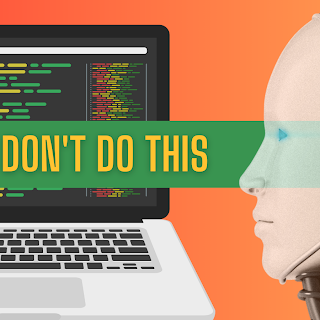Mahalaya marks the start of the 'Devipaksha' and the end of the 'Pitri-paksha'. The traditional six day countdown to Mahasaptami starts from Mahalaya. Goddess Durga visits the earth for only four days but seven days prior to the Pujas, starts the Mahalaya. The enchanting voice of Birendra Krishna Bhadra fills up the predawn hours of the day thus marking the beginning of "Devipaksha" and the beginning of the count-down to Durga Puja.
Myth regarding Mahalaya:
Pitri- Paksha is a 16 day period during which Hindus pay homage to their ancestors. As per legend, when Karna died in the epic Mahabharata, his soul transcended to heaven. There he was offered jewelry as food. Bemused, Karna asked Indra for the reason of this bizarre happening. Indra told him that because of the fact that he has never donated food to his ancestors in Shraddhas, during his lifetime, he was getting such treatment. Karna said that he was unaware of his ancestors and hence he had no chance of donating food to them. He was given a chance then to make amends. He returned to earth for a 16 day period and performed Shraddha and donated food in memory of his ancestors. This period is henceforth known as Pitri-Paksha. Goddess Durga starts her journey towards earth on the day of Mahalaya, i.e. on the first day of the Devi-Paksha.
This day bears immense significance for the Bengalis. According to Puranas, King Suratha used to worship goddess Durga in spring. Thus Durga Puja was also known as Basanti Puja. But Rama preponed the Puja and worshiped Durga in autumn and that is why it is known as 'Akal Bodhon' or untimely worship.
Actually, Sree Rama hastily performed Durga Puja just before he set for Lanka to rescue Sita from Ravana It was considered untimely as it is in the myths that puja was performed when the Gods and Goddesses were awake i.e “Uttarayan" and was not held when the Gods and Goddesses rested ie."Dakshinayan".
The ritual of Torpon-
Sarat in its bloom, mingled with the festive spirit of Durga Puja reaches its pitch on the day of Mahalaya. It is the day when many throng to the banks of river Ganga, clad in dhotis to offer prayers to their dead relatives and forefathers. People in the pre-dawn hours pray for their demised relatives and take holy dips in the Ganges. This ritual is known as 'Torpon'. The eldest son is the one who generally performs the Shraddha. Any male relative of the paternal branch of relatives can also perform the rites. Some castes perform for only one generation, while others offer to more, commonly three generations.
The foods which are usually being offered to the ancestors are cooked in silver or copper vessels and are offered on banana leaves. The foods may vary but it must include rice, dal, kheer,lapsi, yellow gourd, and certain vegetables.
The one who performs the Shraddha is expected to take a holy bath and then should wear a dhoti. The Pinda –daan (offerings during the Shraddha) are made bare-chested. Then a cow and dog are also fed. The Brahmins are offered then with the food. Once all these are done with, the family members can begin their lunch.
Mahalaya on electronic media- Mahalaya is a special day which comes in the lives of all Hindus, especially Bengalees, once a year.
It was on the day of Mahalaya, the beginning of "devipaksha", the Gods and Goddesses woke up to prepare themselves for Durga Puja. Akashvani Mahalaya: During the early 1930s, Mahalaya was first broadcasted over the radio in Akashvani. The programme was organised by Premankur Aatorthi, Birendra Krishna Bhadra, Nripendra Krishna Mukhopadhya and Raichand Boral. It was broadcasted live then.
 |
| Sri Birendra Krishna Bhadra (1905 -1991) |
Later it was recorded and played. Bengal's cine star, Uttam Kumar had once recited Mahalaya while Hemanta Kumar Mukhopadhya was the music director. But it was not popular among the mass and from then it has always been the voice of Birendra Kishna Bhadra, enthralling the listeners in the pre-dawn hours of Mahalaya. The voice of Birendra Krishna Bhadra has become a part of the life of all Bengalees. Along with the other trademarks of autumn, this too plays a pivotal role in indicating that happy times are arriving; the Durga Puja is in the doorsteps of every Bengali. The script was written by Bani Kumar, music was directed by Pankaj Kumar Mallik while Dijen Mukhopadhya, Manobendra Mukhopadhya (Tabo Achinta....), Sandhya Mukhopadhya, Arati Mukhopadhya, Utpala Sen, Shyamal Mitra and Supriti Ghosh, (Bajlo tomar alor benu....) sang in their melodious voices. The audio CD of this broadcast is available through HMV. Also, Doordarshan shows a visual treat at the same time on the morning of the Mahalaya. After the advent of the satellite channels, most of the regional ones too joined the bandwagon, and that too quite successfully.
The night before Mahalaya is also a special and a short one! Earlier, people used to engage themselves in feasts through out that night and the crescendo was reached with the start of the programme on Radio. These things have faded away with the course of time, but the nostalgia and excitement which Mahalaya once created is still there.
The eye is given to the idol of Devi Durga on this auspicious day. It is an age old custom which is rather obsolete these days. Still, some age old houses which observe the Durga Puja abide by this custom, even today.
Mahalaya is an important day, especially in Bengal. Many offices and all educational institutions remain closed on that day. People eagerly wait for this day, since it effectively marks the beginning of the biggest festive period of the year.
Photos: Sumit Kar
(Sri Birendra Krishna Bhadra's Photo: Google Search)
Text: BengaliNet

.jpg)
.JPG)
.jpg)
.jpg)
.JPG)
.jpg)
.jpg)



0 Comments